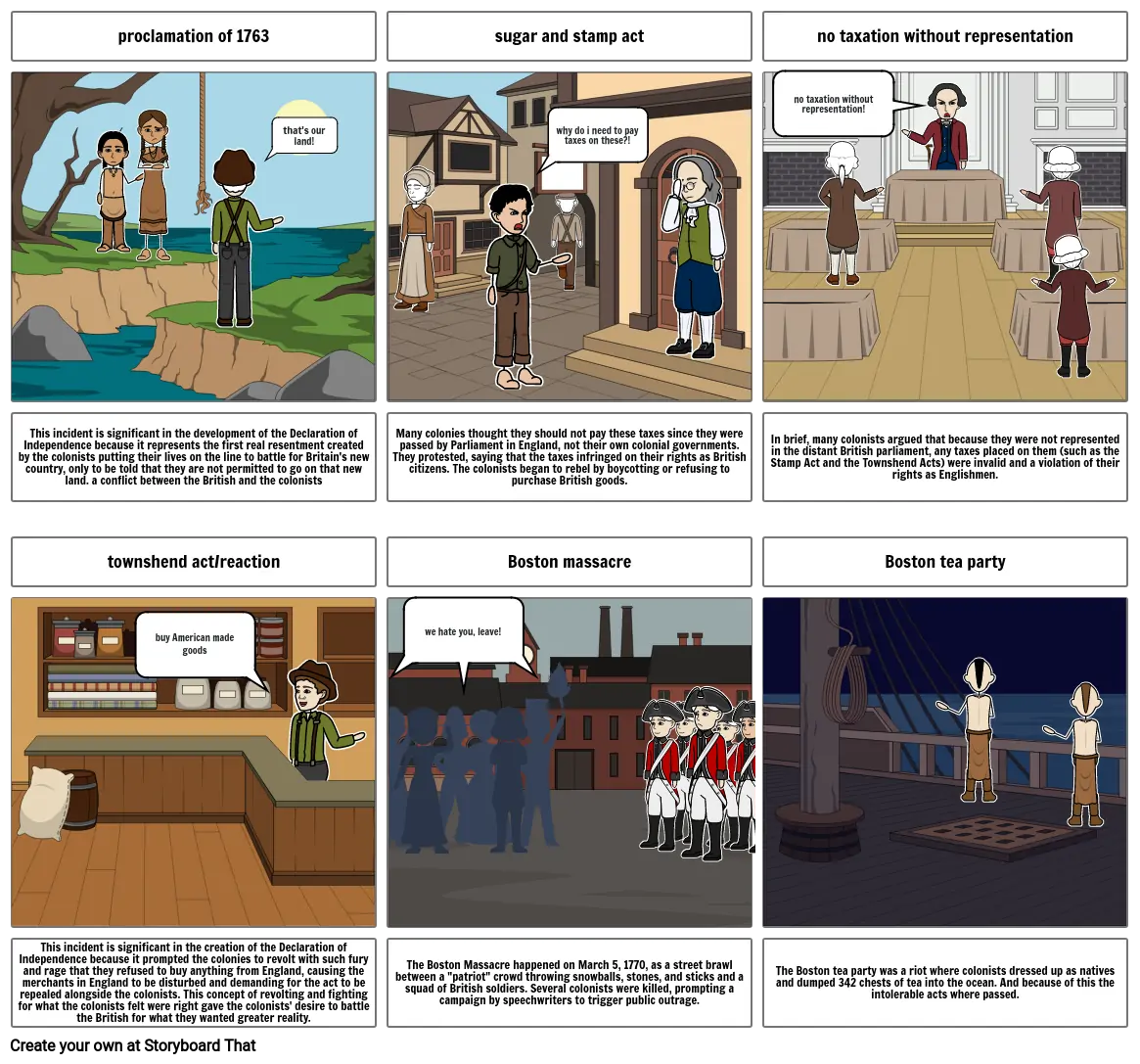The Road to Revolution comic

Siužetinės Linijos Tekstas
- proclamation of 1763
- that's our land!
- sugar and stamp act
- why do i need to pay taxes on these?!
- no taxation without representation
- no taxation without representation!
- This incident is significant in the development of the Declaration of Independence because it represents the first real resentment created by the colonists putting their lives on the line to battle for Britain's new country, only to be told that they are not permitted to go on that new land. a conflict between the British and the colonists
- townshend act/reaction
- buy American made goods
- Many colonies thought they should not pay these taxes since they were passed by Parliament in England, not their own colonial governments. They protested, saying that the taxes infringed on their rights as British citizens. The colonists began to rebel by boycotting or refusing to purchase British goods.
- Boston massacre
- we hate you, leave!
- In brief, many colonists argued that because they were not represented in the distant British parliament, any taxes placed on them (such as the Stamp Act and the Townshend Acts) were invalid and a violation of their rights as Englishmen.
- Boston tea party
- This incident is significant in the creation of the Declaration of Independence because it prompted the colonies to revolt with such fury and rage that they refused to buy anything from England, causing the merchants in England to be disturbed and demanding for the act to be repealed alongside the colonists. This concept of revolting and fighting for what the colonists felt were right gave the colonists' desire to battle the British for what they wanted greater reality.
- The Boston Massacre happened on March 5, 1770, as a street brawl between a "patriot" crowd throwing snowballs, stones, and sticks and a squad of British soldiers. Several colonists were killed, prompting a campaign by speechwriters to trigger public outrage.
- The Boston tea party was a riot where colonists dressed up as natives and dumped 342 chests of tea into the ocean. And because of this the intolerable acts where passed.
Sukurta daugiau nei 30 milijonų siužetinių lentelių

